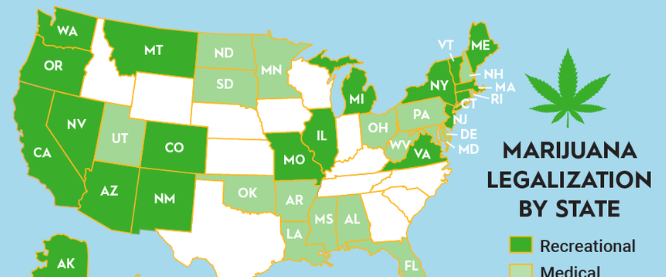
Swing States Shift: Cannabis Legalization Reshapes US Electoral Landscape for 2024
As the 2024 US elections approach, a surprising issue is reshaping the political landscape: cannabis legalization. States historically leaning conservative are showing increasing support for legalizing recreational marijuana, challenging traditional party alignments and potentially altering future electoral outcomes.
Ohio, once a pivotal swing state, has recently approved recreational cannabis with a significant 57% majority, joining other conservative states like Missouri and Montana. This shift indicates a growing liberal stance on cannabis among conservative voters, diverging from Republican leadership’s efforts to keep this issue off the ballot.
Exit polls in Ohio reveal a diverse support base, with 30% of self-identified Republicans and 64% of independents backing the measure. However, Republican elected officials, including Governor Mike DeWine, have largely opposed it. This divide mirrors a national trend where Republican legislators have shown minimal support for cannabis reforms, despite increasing voter favorability.
The issue’s popularity suggests it will remain a key battleground beyond traditionally liberal states. In North Dakota, a deep red state, a 2022 ballot measure for cannabis legalization garnered 45% support. Similarly, in moderate swing states like Pennsylvania and New Hampshire, public support for legalization clashes with legislative gridlock, often due to insufficient Republican backing.
Experts suggest this dissonance reflects a generational divide and a lingering perception of cannabis as a fringe issue. Younger voters, especially under 30, overwhelmingly support legalization, in contrast to older conservative counterparts.
This emerging dynamic not only challenges Republican orthodoxy but also offers Democrats a unique opportunity to mobilize a broader voter base, particularly among younger and more liberal demographics. With cannabis reform measures potentially increasing voter turnout, they could become a decisive factor in the upcoming 2024 elections.


Average Rating